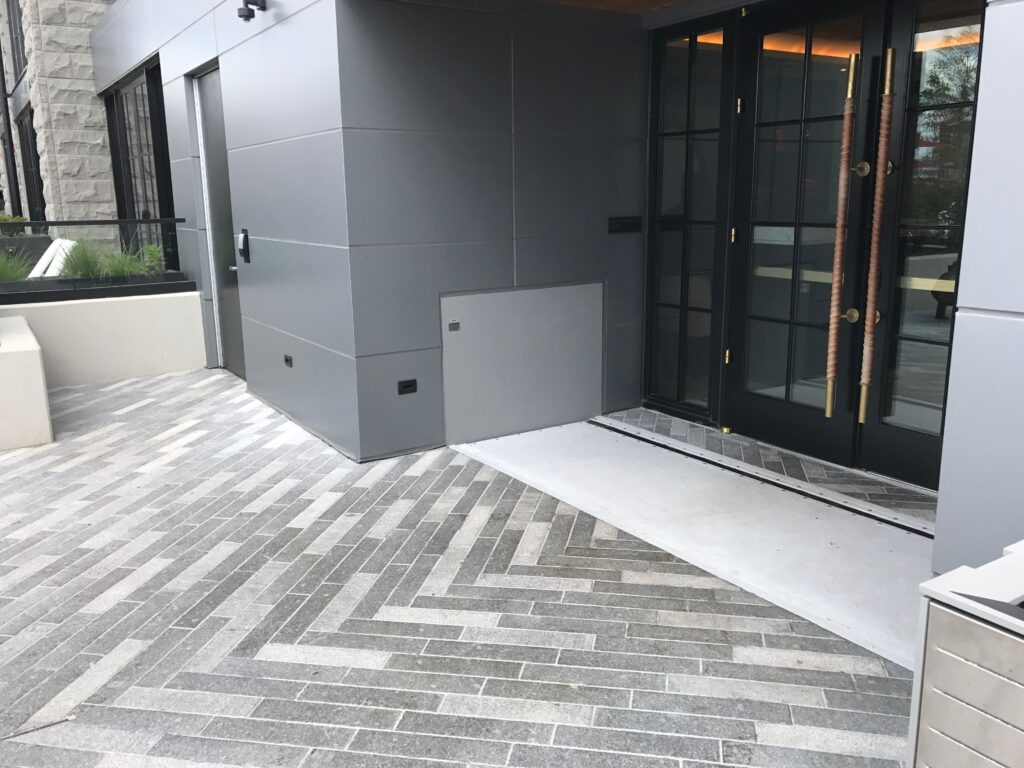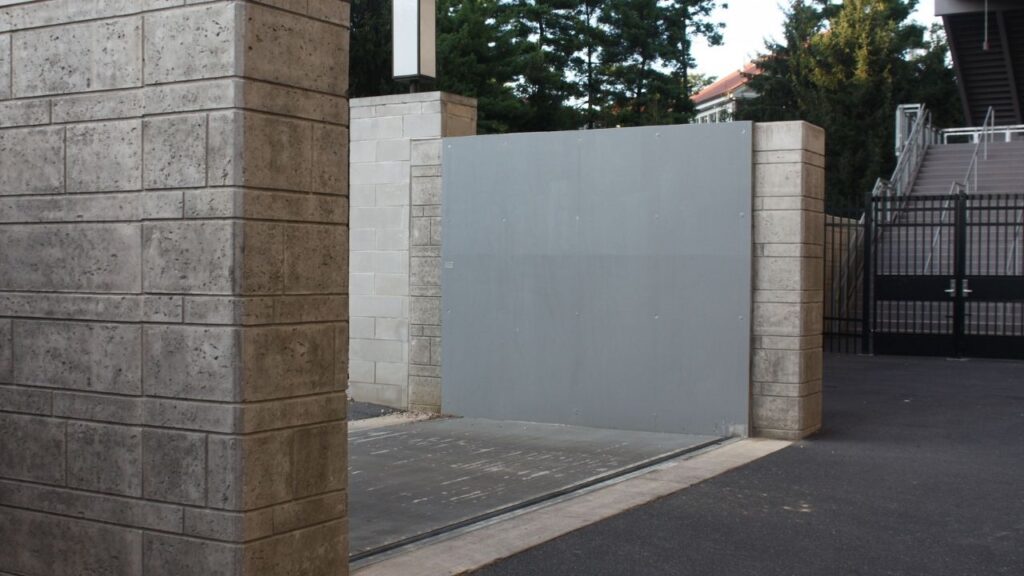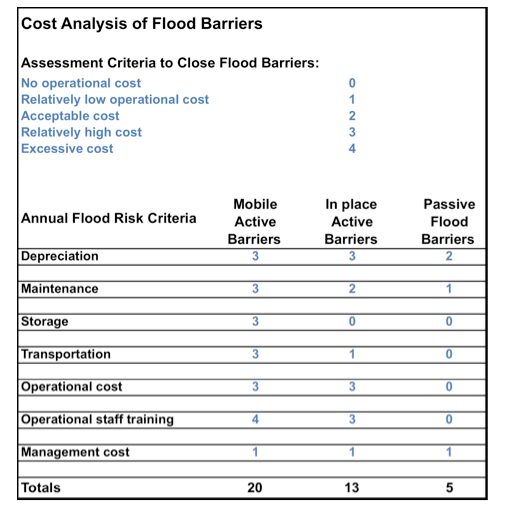The Advantages Of Passive Flood Protection
Passive flood control has become the industry standard due to it’s impressive track record and hands-off approach to floodproofing.
This innovative method developed by FloodBreak allows for maximum protection of valuable properties and assets without the physical labor and planing that is required for active measures to work.
When choosing a flood barrier system for your flood control project, it’s important to know the differences between passive flood protection and active flood protection so that you can make the best decision for you.
What Is Passive Flood Control?
Passive flood control is a form of flood protection that uses passive barriers and floodgates to protect properties. These flood barriers are hydraulically lifted by water and do not rely on electricity or human intervention to operate. They are typically situated at vulnerable entryways around the perimeter of a property, such as garage entrances, stairwells, and building openings.
Passive flood barriers can also be used to seal off floodwalls or extend levees. It is a highly adaptable flood mitigation solution that is now recommended by FEMA as the standard for floodproofing non-residential buildings.
By being permanently installed and activated without any electricity, personnel, or training, passive flood protection is the only form of flood protection that truly gives owners 24/7 peace of mind that their valuable assets are safe.

Passive Vs Active Flood Barriers
Active measures are more traditional. This can includes things like flood doors, logs, and bladders that can be set up and taken down whenever a property is at risk. While active measures do provide flood protection, they have been known to fail. In addition, the manual nature of active measures means resources must be allocated in order to deploy them correctly. As the name suggests, active flood control is very hands on, labor intensive, and can get more expensive as time goes on.
Passive flood barriers not only reduce the risk of flood damage, they also provide lower total cost of ownership.
The True Cost Of Flood Protection
Passive flood control is almost always a larger initial investment than active measures. Unlike active measures, passive barriers pay for themselves over time due to their long service life, minimal maintenance, and true floodproofing capabilities.
Active flood barriers, particularly demountable systems like flood panels, flood logs and inflatables, may have a lower purchase price but have you considered what the true costs are over time?
Consider that those active flood control products must be transported to and from the flood opening, folded or stacked and then stored between flood events. Not to mention mandatory annual planning and training as part of an Emergency Plan.

It seems simple and easy on the surface, but to execute an active flood mitigation plan effectively takes a huge amount of due diligence and labor.
The table below shows the cost analysis of 3 different types of flood barriers: mobile active barriers, in-place active barriers, and passive flood barriers.
As you can see, passive flood barriers have virtually zero operational cost when compared to active barriers.
That is why passive is described as a permanent floodproofing solution rather than temporary. Once the gates are installed in the ground, there is very little property owners need to do to maintain operational capabilities.
Active flood barriers cost more money the longer they are in use. This increased cost comes with decreased floodproofing safety and a greater number of potential risk factors.
When you consider those costs and the attendant risks associated with those factors, passive flood barriers, which protect your facility 24/7 without human intervention or power, are a much better flood control solution.

Passive Vs Active Side-By-Side
The table below highlights the benefits of choosing FloodBreak’s passive automatic flood barriers over active alternatives.
If you have more specific questions about passive flood protection and how it works, please email us at info@floodbreak.com or complete the contact form below.
Contact Us:
View the Slideshare presentation:

